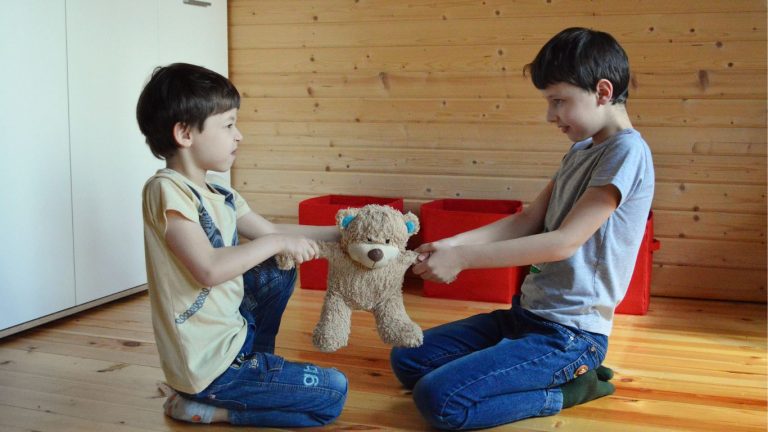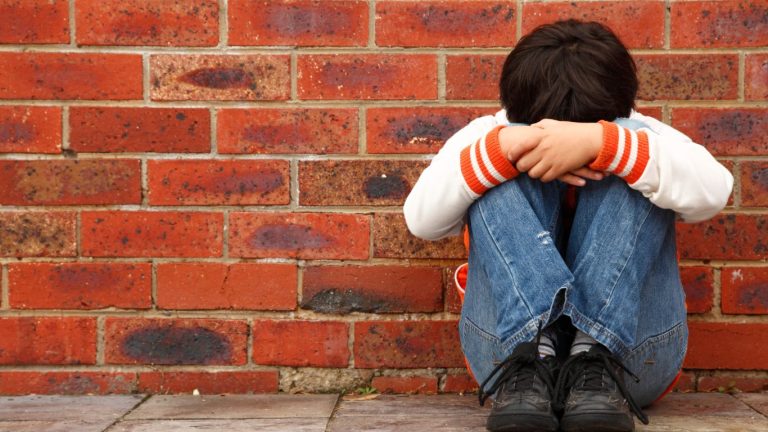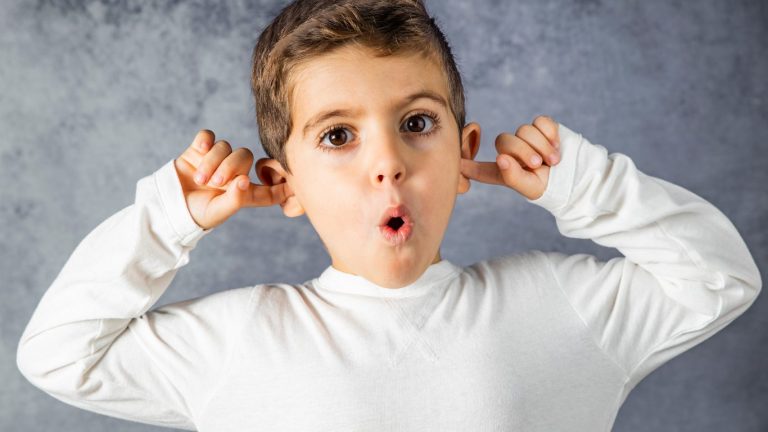Children are constantly grappling with increasingly new amounts of information, environments, activities, expectations, people and so much more. Helping children to adapt to change, and to become more resilient as people, is a vital life skill for parents to teach.
It stands to reason the more time children spend in places, and with the things, rituals and people they’re already familiar with, the more secure and in control of their world they’ll feel. And the less likely they are to become overwhelmed.
Unfortunately, as Heraclitus, the Greek philosopher is quoted as saying,
The Only Thing That Is Constant Is Change.
Children love and thrive on routine, rhythm and generally spending time with that which they’ve already mastered. And at the same time children are inherently driven to keep learning and exploring new territory and adapting to change.
They like to explore from a safe and secure state, which they mostly achieve when they feel looked after by the person who they know is intently focused on their wellbeing. At times of change a child will attempt to draw all that they need from the person and people who love and care for them the most.
There’s just so much knowledge and so many skills that we adults have acquired that we can’t help taking for granted, because we don’t have to worry about what’s already known, it just is as it is.
But for our children, there’s so much around them every day, even in the boring adult conversations they overhear, that’s not yet familiar or even understood to them. No wonder they need so much more sleep than u
Some typical changes that many children experience and may have questions about:
- The birth of a new sibling, and indeed children sense change even from the time that their mother becomes pregnant. Then there’s the old adage that a person either moves house, renovates or both during pregnancy.
- But of course moving house at any time can be a huge change for a child to adapt to.
- Illness brings change, mostly temporarily thankfully, but still big changes to the routine and often to the mood of parent, child or both.
Other common changes that many, if not most families, go through include:
- when a parent returns to work
- weaning from night feeds or from breastfeeding
- increased conflict amongst parents
- a new caregiver or early childhood situation
- starting or changing schools
- puberty and on and on it goes.
Then there’s the really big ones like divorce, serious illness, emigration, accidents or a death in the family. There will always be more changes ahead, change is sometimes unexpected, sometimes exciting, sometimes a relief. But it’s nearly always challenging, can be somewhat destabilising and sometimes traumatic.
Helping children adapt to change
At times of change, many children can feel less secure and more stressed. And when a child feels insecure and stressed, anything and everything can be harder for them to handle. Sadness about saying goodbye to mum or dad when taken to school or the sadness of ending a play date can evoke deeper feelings of grief relating to the bigger changes a foot.
I remember a friend telling me about his daughter being completely beside herself with grief and distress because when they went back to the library to get her card she’d left there earlier, the library was closed. The same girl’s mother had died a couple of years earlier, little losses touched on big feelings of grief for her, and every cry was a part of her ongoing grieving process.
Change always involves the letting go of how things have been from one extent to another. The stress of change can manifest in different ways for different children.
Many children become extra clingy and seek out more hugs, more stories before bed and more attention in general.
It’s also not unusual for children to regress at such times. The 4 year old who has long since potty trained might have a few accidents. The 3 year old whose been happily sleeping in their own bed wants to sleep with her parent/s. Big boy or girl voices disintegrate into high pitched whining. The 7 year old pushes her friends when she gets angry.
You can expect an increase in defiance or even aggression at times of extra stress relating to change. It’s important to express the limits that reflect that we can’t allow destructive behaviour, but it doesn’t help their behaviour or their emotional wellbeing if we’re harsh or punitive.
Using empathy to deal with change
Even when we express limits or remind them of the tasks at hand, it’s our empathy and understanding of those big feelings driving their tendency to be oppositional, which allows them to feel safe and secure.
Ultimately this will help them move through the difficult feelings that change brings.
Because the child who has some smouldering feelings relating to anticipated or recent change is less likely to identify and express their feelings eloquently and more likely to show those feelings in generally antisocial behaviour. It’s very important that we give them 
It can help to remember that children don’t want to make our already stressful load even greater by making life difficult for us, they simply can’t manage big feelings without our emotional support.
Change can make a child very grumpy and parents can feel like they’re walking on egg shells avoiding giving requests or corrections in the hope of avoiding meltdowns.
But in fact what often brings the child relief is when we stop trying to appease them and we control our urge to over-react to them, but instead hold any particular limit like ‘no’ to TV, sugary food, visiting friends, whatever they’ve become fixed on, then give our full attention as the inevitable meltdown allows their grumpy feelings to start to spill out.
Children try to escape uncomfortable feelings by grasping on to getting the things that they think will make them happy too.
But there’s a difference at such times between what they want and what they need.
If we hold steady with a limit without bargaining or negotiating, but instead reiterate the limit calmly but confidently; ‘no my boy, I’m not going to put the TV on today’, and give them our full attention and empathy, it often allows the child to work their way through feeling their disappointment and grief.
Our child can make the most of our emotional support and it often brings the stress releasing tears that helps them get lots of frustration out of their system.
It’s often after a big meltdown that children find renewed energy and to accept their new challenges.
Listening to and allowing a child’s huge protests and upsets about the new baby for instance can feel heartbreaking, but it’s often after getting it all out that the same child will clearly show increased affection and patience for their baby sibling.
My own experience with change
When children are going through big changes, we can help them by making the process of change as incremental as possible.
It helps if we can assist them to familiarise with the new before it happens, utilising visits, chats, books, stories or Youtube clips. Before visiting London with my daughter when she was seven, we went to the travel agents and got a couple of brochures, we searched through websites and books about London and watched videos and talked to my sister on Skype to help build my daughter’s sense of connection and familiarity.
Although it was all exciting for her, I knew well that it would also be very challenging to be away from home and from her dad and big brother.
Before we moved from Auckland to Whangarei when my children were 7 and 2, I knew that it would be a really difficult change for everyone. I thought long and hard about how to minimise the stress of both the losses and the journey of fitting in to the new world. So we made some of trips up north in the months prior, going to stay in our family bach in Whangarei which is a familiar territory for them full of fond memories of big family gatherings, always visiting their favourite playground in the city.
Then after we made the move, we made regular visits back to Auckland to stay with relatives and catch up with the children’s closest friends.
Every time we got in the car for the first couple of weeks my daughter asked; “Bella’s house?” with eager anticipation. But her best friend Bella was now a three hour drive away, so it was good to sometimes be able to say: “yes we’re off to Auckland to see Bella and all our friends” – at least sometimes. Sometimes my “no, we’re not going to see Bella, we’re going to Playcentre” would elicit a big heart wrenching cry and the least I could do was stop the clock and give her empathy and hugs as she expressed her grief.
I knew that distracting her from her feelings would lengthen and prolong her process of adapting to the change, so I valued those times as moments of necessary grieving, times of healing.
It can really help to remember “this too shall pass”.
Looking back, I wish I’d been more clued in to the importance of making change as smooth as possible when we emigrated from Ireland to New Zealand when our son had just turned 3.
We might as well have taken him to a different planet!
If I’d put more thought into how I could access support for myself, I could have found myself on more solid ground a bit quicker knowing that coming to terms with the change would all be easier when he could feel his mum’s happiness and confidence in our new world.
We got there in the end. I recommend that parents seek extra physical and emotional support at times of change for the sake of their child as much as themselves.
Now that you know more about helping children adapt to change, find out about Using Empathy to Deal With Your Child’s Emotions. Or, for more expert advice check out our Development and Behaviour sections.





